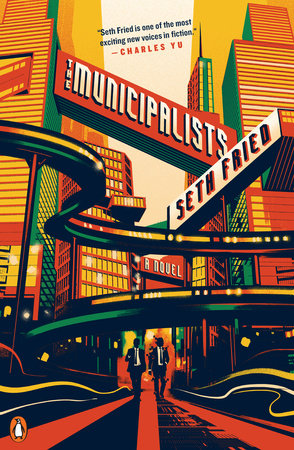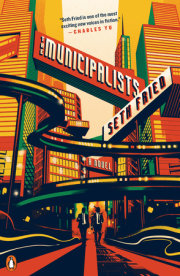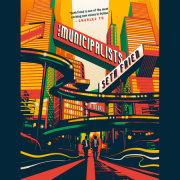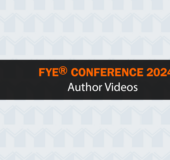1
In Suitland, Maryland, just outside DC, there is a large gray building that is home to the United States Municipal Survey. The main building boasts over 2 million square feet of assignable space. It houses research laboratories and data centers where our technicians utilize fleets of aerial drones to monitor most US cities in real time. In our Traffic department, serious men and women use VR rigs to investigate congested roadways, while down the hall the folks in Weather are busy running hurricane-force winds over manhole covers to determine at what point they get sucked up and turn lethal, cast-iron Frisbees whistling with a thud into the reinforced glass. Nearby there's also the compound containing our supercomputer, OWEN, which ingests data from over two hundred satellites. Our headquarters is by all accounts an impressive facility, though my small office on the fifth floor is a bit more modest in scope.
There's just enough room for a desk, two chairs, and a narrow bookshelf of binders. I find it cozy, but the lack of space can occasionally exacerbate an awkward situation. Like when Agent Marcuzzi stomped in that morning, taking a seat across from me without a word.
I had asked him to stop by for a friendly meeting, but his attitude was so immediately hostile that at 7:00 a.m. I was already forced to wonder what sort of day it would be. He hunched forward in his seat, causing the shoulders of his blazer to bunch. His hands were folded in his lap and he was knocking his thumbs together like he was waiting for a bus he didn't want to get on.
He glanced at the model locomotive on my desk and I hoped for a moment he might smile. Next to my nameplate, I had placed a 1:64 scale model of an eight-axle C8 Manley & Wrexler. I had a reputation at the agency for being somewhat joyless and so I'd brought the model from home to liven up my workspace. It was from a series of collectibles called Trains of Yore, which depicted classic locomotives in scrupulous detail. They were generally marketed toward the elderly, but I was thirty-two and owned over two dozen of them. I liked the look of that handsome little locomotive on my desk and the C8 never had an accident while in use. So there was also an inspirational element. Yet when Marcuzzi saw it, he grimaced.
"I'm sure you know why I asked you to come."
"No," Marcuzzi said. "I have no idea."
This surprised me.
"Fort Collins," I continued. "You reported 4.73 percent added efficiencies."
He nodded.
"The group's goal," I said, "was 5 percent per target municipality."
"I know what the goal was."
"Then you know that 4.73 percent is unacceptable."
Marcuzzi let his mouth hang open, as if he couldn't believe what he'd just heard.
"Thompson, are you joking?"
"About this? Of course not."
"That's insane," he said. "That-that's well within the margin. Those numbers are just to give you a general sense of-God damn it, I achieved my goal."
"Peter," I said. "On the projects I run, numbers are numbers. I asked you here so we could talk this through and get your efficiencies up."
"A third of a percentage point? What do you want me to do? Head out to the wind farms and blow?"
"So you agree," I said, "that making up the difference wouldn't be hard to do."
I had been trying to insert some humor into the conversation, but Marcuzzi must have read my smile the wrong way.
"Honestly, Henry. Go fuck yourself."
He almost knocked over his chair as he left the room.
If I were less accustomed to this sort of friction with my colleagues, then a display of that sort would have been a minor scandal. But as it was I simply made a note to head out to Fort Collins myself at the first opportunity. I also took a deep breath and turned the C8 around on my desk so it faced me. In the cab stood a lone engineer staring ahead soberly, his little eyes taking in the seemingly endless plains to be traversed. I smiled down at the man. Yes, life wasn't easy, but luckily there was always much to be done.
I'd blocked off an hour for Marcuzzi, so now there was time to attend the meeting for the Port Oversight Committee happening down on the third floor. It was hard not to regain your confidence when you were walking with purpose through the halls of headquarters. The speckled white granite floors were always polished and glassy, while the dark wood paneling along the walls gave the place a warm, collegial air. It was early still, but the broad corridors were already resounding with the dressy heel clacks of so many agents, all of us looking sharp in our matching, agency-issued suits-navy single-button blazers with thin lapels and the option of pencil skirts for any female agents who preferred them. I passed men and women gathered in the open work areas to discuss infrastructure problems. They rearranged 3-D projections of subway tunnels and took notes while model dams buckled from the force of simulated earthquakes. A group of junior agents passed me in a huddle, grabbing fist-sized data sets from their agency phones and tossing them onto each other's screens as they argued among themselves about carbon emissions in the Rust Belt and the legalities of federal intervention.
The agency had begun seventy years back as a plucky arm of the DOT, a few dozen policy wonks who took pride in punching above their weight. But at the rate the world was urbanizing, cities had become the new space race. Our budget had exploded and we now coordinated with state and local governments to fund and advise thousands of major city improvement projects every year. We were in the middle of the golden age of American urban planning and for me the atmosphere of collective optimism never failed to produce a pleasant sense of belonging.
I remembered I had some fieldwork coming up in Wisconsin so I took out my agency phone and asked for the five-day forecast in Madison. The animation of a handsome young agent with startling blue eyes appeared on the screen.
"According to GPS," OWEN said, "you're at USMS headquarters in Suitland, Maryland."
Our chief technology engineer, Dr. Gustav Klaus, had put a lot of time and energy into OWEN's artificial intelligence interface, but the more humanlike the interface became, the more trouble I had interacting with it.
"I'll be flying out later this week, just . . ." I held the phone closer to my mouth and half barked into it, "Weather conditions. Madison, Wisconsin."
My voice was louder than expected and a fellow agent frowned at me as she passed.
"You sound stressed," OWEN said.
The animation's eyebrows arched slightly to demonstrate its concern. "While you're in Madison, you should take some time for yourself and check out Lake Monona. It's supposed to be nice."
"The weather, OWEN, I just need to know the weather."
"Oh, it's the middle of June," OWEN said. "I bet it's gorgeous."
I closed out of the interface in frustration. Between Marcuzzi and my own phone, the morning seemed off to a poor start. As I entered the meeting, I tried to focus on my eagerness to hear Agent Steinbelt's report on Norfolk and the proposed regulations the agency would attach to any new funding. Steinbelt planned to start with a virtual tour of Lambert's Point and so we were in the windowless central boardroom with one of the better 3-D projectors. I took a seat at the long conference table and told myself there was time enough for this day to be a good one. A productive one.
But almost as soon as Steinbelt brought up the simulation, the projector sputtered out and the waters that had just begun to lap at our feet faded from the room. The fire alarm let out a single shrill whoop and then went silent as our agency phones began to emit a high-pitched tone. The devices lit up the dark room as committee members removed them from their pockets and briefcases. The screens all displayed a dense block of characters:
!#~#K#~y1878~#@#~#!/!#~#@#y#!9!#~#@#~#!
!#~#@#~#!%!#~#@'~#!8!#~#@#~#!%!#~#'#~#!
!#~#@#~#!%!#~#@'~#!8!#~#@#~#!%!#~#'#~#!
!#~#@#~#!%!#~#@'~#!8!#~#@#~#!%!#~#'#~#!
!#~#@#~#!%!#~#@'~#!8!#~#@#~#!%!#~#'#~#!
!#@#~{LA_URBOJ_ESTAS_FROSTIGITAJ}~#!
!@^!~.>Kt&*'87@/8^8Kt%!#~#@#~9P/{788##!
!87@/~#!%!#~#@87@/~#!%!#~#@@/888Kt&*!
!@^!~.>Kt&*'87@/888Kt%!#~#@#~9P/{888##!
!#~#K#~y1878~#@#~#!/!#~#@#y#!9!#~#@#~#!
!#~#@#~#!%!#~#@'~#!8!#~#@#~#!%!#~#'#~#!
!@^!~.>Kt&*'87@/8^8Kt%!#~#@#~9P/{788##!
!87@/~#!%!#~#@87@/~#!%!#~#@@/888Kt&*!
I stared down at the message in confusion while the other committee members held up their phones like flashlights and shouted questions to one another.
I excused myself and hurried out of the room to report the issue to a technician. In the hall, the sunlight coming through the windows only emphasized that the whole building had gone dark. A few nearby faces were illuminated as agents examined their phones. Elsewhere people flipped unresponsive light switches and tapped the dead call buttons on elevators. Some half leaned from their office doors as if waiting for someone to wander by with an explanation. Meanwhile, shouts began to come from behind the doors of the secure rooms whose passcode-protected entryways were sealed shut without power.
The noise from my phone grew more piercing and then abruptly stopped. I held it up to check the screen and it exploded. There was a flash of sparking blue flame and something hit my face like a fist. All at once my palm was bleeding and there was a sharp pain in my cheek. The hall was filled with the smell of burned plastic and I felt dizzy. All around me there were blurred figures stumbling forward and covering their mouths or clutching their hands to their chests. The shouts from the sealed rooms grew more frantic and I could hear people begin to pound on the doors.
My breathing felt unsteady as I removed my necktie and wrapped it around my palm. I could feel my pulse where it was hurt. When I noticed how fast it was, it went faster. There was an old panic welling up in me, a childish sense of helplessness at the world's ability to go suddenly upside down.
Something jostled me and I looked up to see a group of agents rushing past. One of them noticed me standing there and shouted, "Come on!" The urgency in his voice broke through my fear and I joined them as they dragged a desk out of the secretary pool. We used it to ram down the heavy double doors to a conference hall where we could make out people crying for help.
The rest of that day was a confusion of darkened corridors as we agents divided ourselves into groups and rushed through headquarters, prying open doors and tending to people's injuries as best we could. I eventually found the agency's director, Theodore Garrett, just outside his own office, improvising a bandage for a young woman's hand out of one of the spare dress shirts he kept in his desk. I tried to get him out of the building, but he just gave me a serious look and told me to make myself useful.
Even after the north lawn had become a frenzy of strobing lights from the arriving ambulances and fire engines, Garrett refused to leave. Around two in the morning I brought him a mug of instant coffee. He was standing under a work light in the main entryway to the first subbasement, talking a team of firefighters through a map of the floor's access tunnels. His shirtsleeves were rolled up to his elbows and he had a determined look on his face that caused even his mussed white hair to inspire confidence. The left side of my face had started to swell up from where the shards of my phone had lodged themselves and when I approached him with the coffee it seemed to take him a moment to recognize me.
When he did, he dismissed the firefighters and took my head in his hands, tilting it back so he could get a better look. He whistled the way he did when I showed him troubling data from a town where the employment rate was starting to stagnate or where the high school test scores continued to drop. It was an oddly comforting sound, indicating that things were indeed bad but it was nothing he hadn't seen before.
"Can you still see out of this one?" he said, waving a hand in front of the eye that was nearly swelled shut.
I told him I could and he stepped away.
"You'll be fine," he said, like a father playing down a scraped knee.
Strangely, it did make me feel better.
He took the mug of coffee, then thanked me. The dark hall was cluttered with upended chairs and dented waste bins. From the floor above us we could still hear shouting and the rhythmic banging of doors being smashed in.
Garrett sighed and looked down. His foot was resting on a printout bearing the cryptic block of text that had appeared on my phone. Before the building lost power this message had shown up on computer monitors all over headquarters. It was spit out again and again by copiers and printers. Garrett moved the printout right side up with the toe of his shoe and examined it.
"'La urboj estas frostigitaj.'" He recited the words slowly and then took a sip of coffee.
"What does it mean?"
He ignored the question.
"It's in Esperanto."
"You know Esperanto?"
"I don't," he said, "but I know someone who does."
Within hours, we started to hear the news coming from the city of Metropolis. While the attack on headquarters in Suitland was in progress, over three hundred miles away the agencyÕs Metropolis station had already been burned down and its underground data center in the West Side had collapsed in on itself, leaving a building-sized sinkhole in Eleventh Avenue. Both incidents took place during the stationÕs hours of operation and yet first responders reported no casualties at either site. Then of course there were the drones.
It didn't take our technicians long to identify that the havoc at headquarters was the result of a virus that was uploaded to the agency's supercomputer. OWEN managed most of our day-to-day operations in Suitland, everything from the building's lights and security passcodes to the automated espresso machines in the break rooms. The rest of our surveillance fleet was unaffected, but the virus had deactivated our drones over Metropolis in midflight, causing over seventy of these titanium orbs, each roughly the size of a basketball and covered in carbon-fiber strakes, to fall from the sky over the most populous city in the Western Hemisphere, crashing into buildings and wounding over a dozen people.
In the days that followed there was a fair amount of public outrage directed at the agency. Garrett accepted full liability and started arranging for the agency to pay hospital bills and damage settlements. Despite being the director of one of the most powerful government agencies in the country, Garrett saw himself first and foremost as a public servant. He always made it clear that his driving passion in life was shortening people's commutes, haggling with zoning boards for more parks, finding the government loopholes that would send funds into the coffers of community centers and public libraries. He spoke of every city in the country with an affection and familiarity that suggested he had family there. He could tell you if the museum was any good and what parts of town to avoid after dark, where to try the pancakes and where to try the pulled pork, what kind of winter they had last year, and if it looked like the school levy was going to pass. Garrett was in his late sixties, but usually bounded around the agency like a much younger man, putting his agents to shame with his sheer exuberance. Now he was sitting in his office making call after call with his shoulders slumped and his face frozen in an expression of stunned, inarticulate grief.
Copyright © 2019 by Seth Fried. All rights reserved. No part of this excerpt may be reproduced or reprinted without permission in writing from the publisher.







